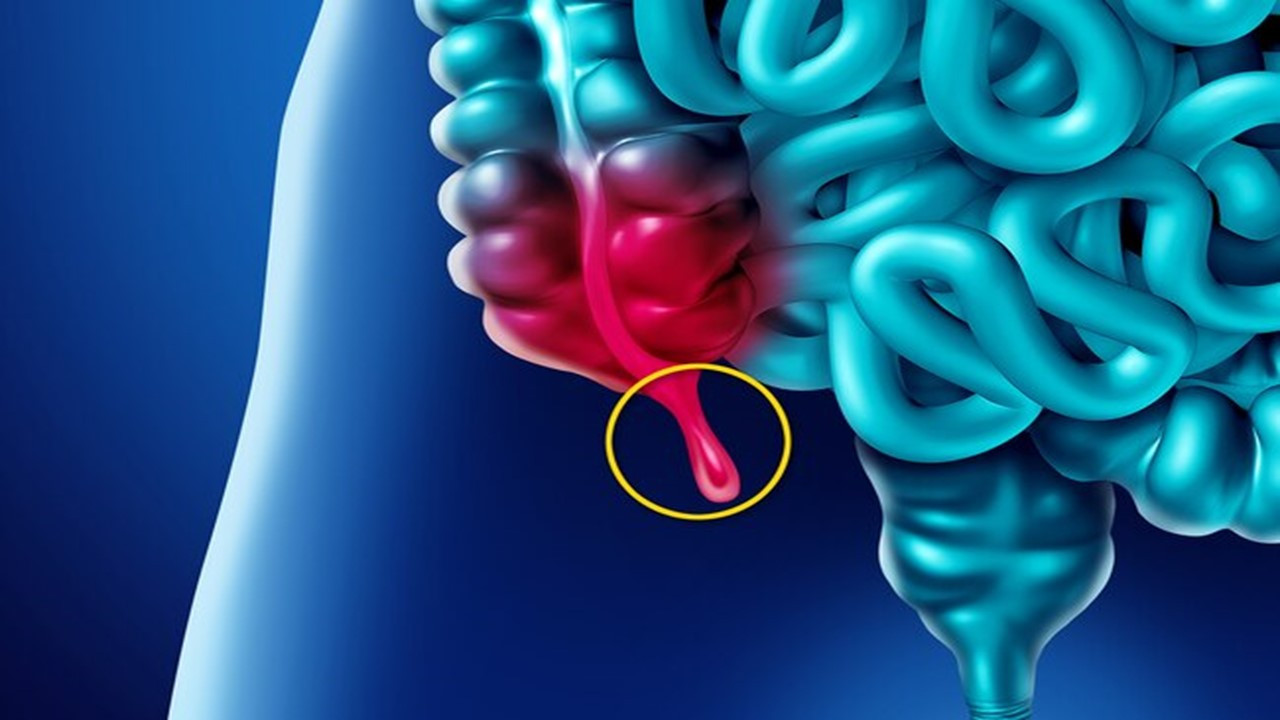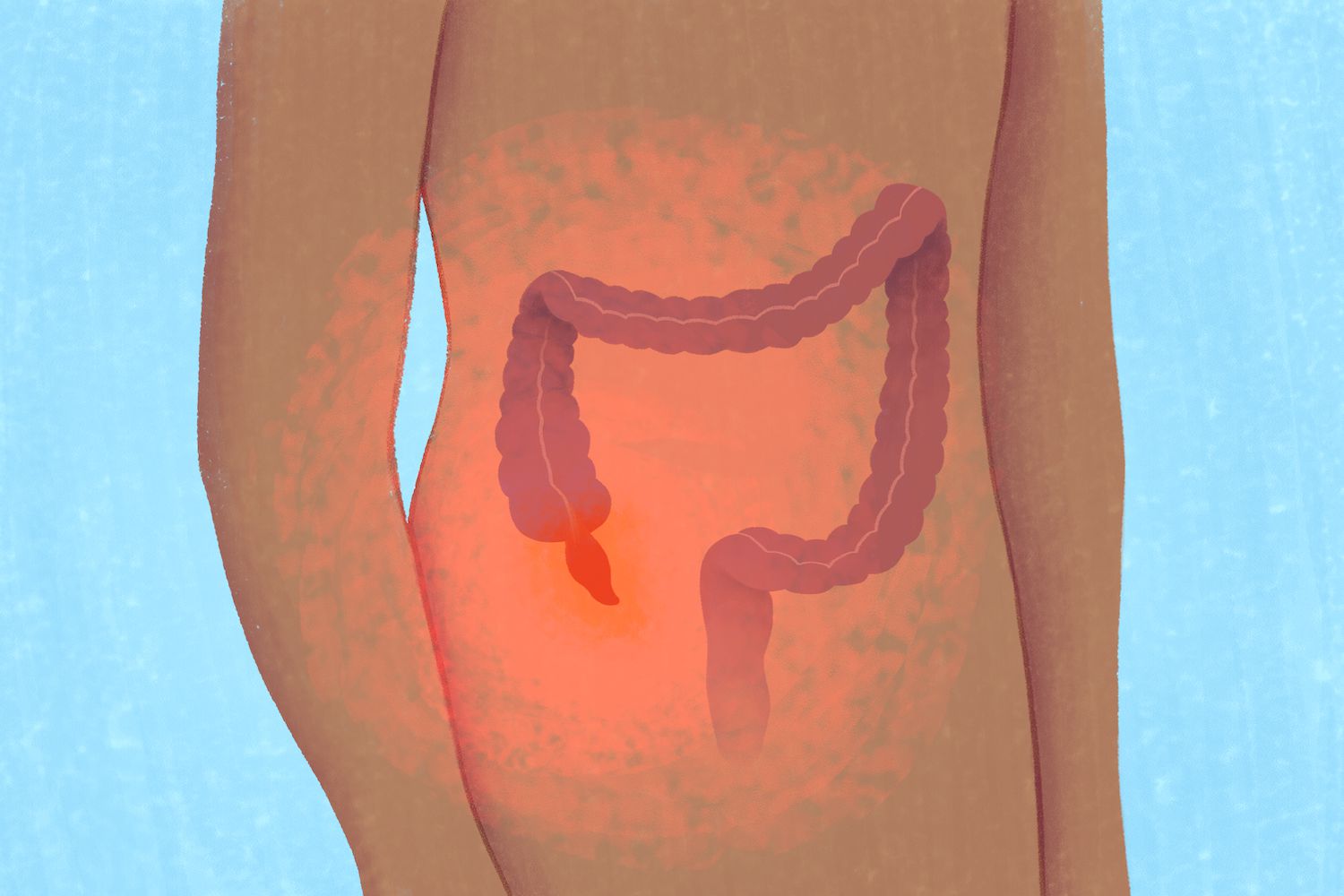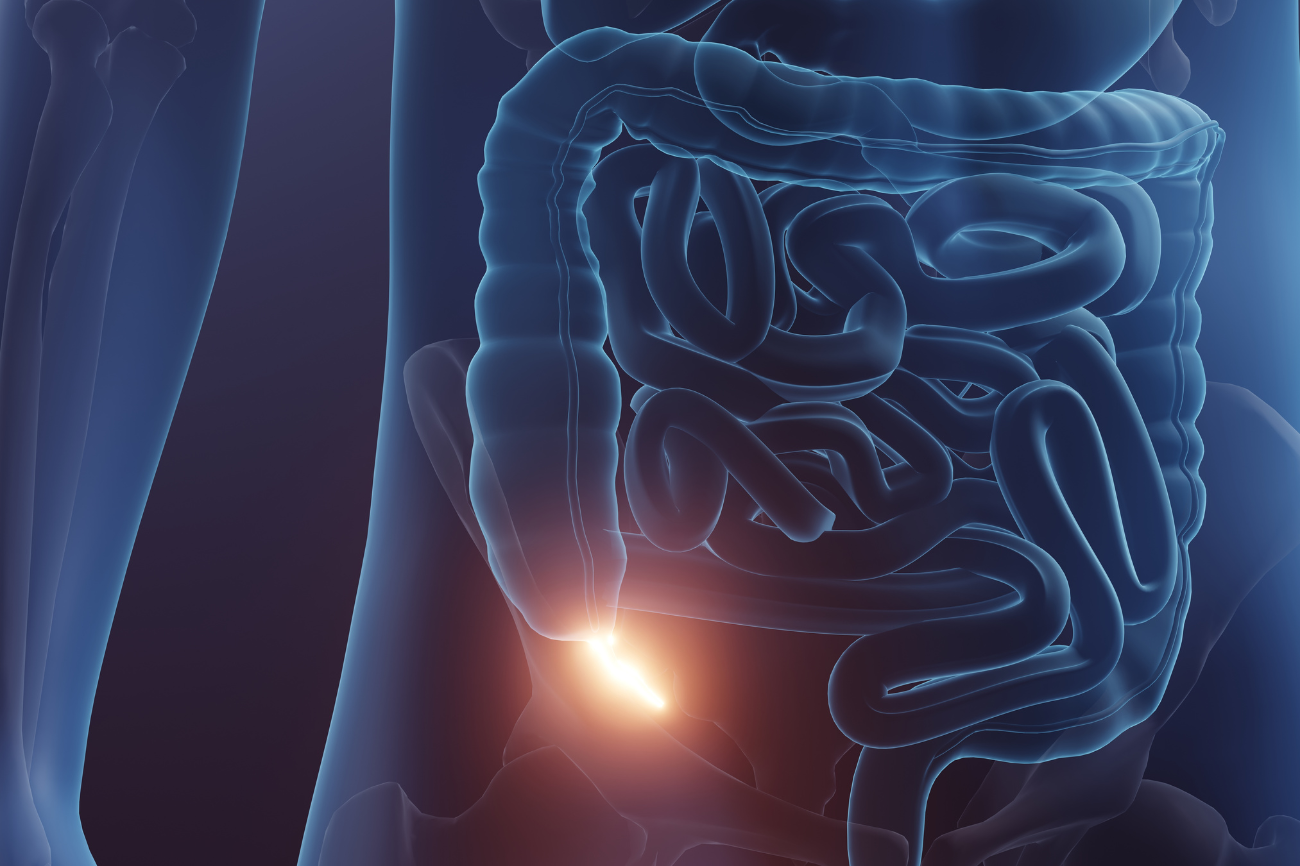
Appendicitis is a common medical condition when the appendix, a small pouch-like organ in the lower right abdomen, becomes inflamed and infected. It often requires surgical removal to prevent severe complications. While the exact cause of appendicitis remains a subject of ongoing research, there is growing interest in understanding what food can cause appendicitis.
The Anatomy Of The Appendix
Before delving into the connection between food and appendicitis, it is essential to understand the anatomy and function of the appendix. The appendix is a small, finger-like pouch part of the more extensive gastrointestinal system.
While its exact position in the human body remains a topic of debate, it is believed to play a role in the immune system, helping to protect against infections. However, the appendix is not considered essential and can be safely removed without long-term health consequences.
The Role Of Obstruction In Appendicitis
One of the prevailing theories regarding the development of appendicitis is the obstruction of the appendix. It is believed that when the opening of the appendix becomes blocked, potentially by stool, foreign objects, or lymphoid tissue, it can lead to inflammation and infection.
This blockage can increase pressure within the appendix, reducing blood flow and allowing harmful bacteria to proliferate. Over time, this can lead to appendicitis.
What Is Acute Appendicitis Vs. Chronic Appendicitis?
Often, appendicitis is an acute disease that develops abruptly and worsens quickly. The majority of what is known about appendicitis, which is highly prevalent, pertains to acute appendicitis. You need to get more information about the uncommon ailment known as chronic appendicitis. It happens when your appendix intermittently irritates over an extended period but never worsens.
Because the symptoms of chronic appendicitis do not worsen as quickly as those of acute appendicitis, it may go unnoticed. However, appendicitis in any form is dangerous. It's crucial to consult a doctor about your persistent stomach discomfort if you don't know what's causing it. An acute or worsening case of chronic appendicitis may happen at any moment. Healthcare professionals approach it in the same manner due to this danger.
What Food Can Cause Appendicitis - 5 Major Food Groups
When the appendix becomes inflamed and bloated, a common and potentially dangerous medical illness called appendicitis results, the appendix is a little finger-shaped pouch that connects the big intestine to the lower right side of the belly. When severe appendicitis, surgery to remove the inflamed appendix may be required. Appendicitis typically needs early medical attention.
Infection, obstruction, and trauma are only a few of the causes of inflammation and swelling of the appendix. Although the precise origin of appendicitis is unknown, some dietary practices and food selections have been associated with a higher risk of the illness.
Processed Meats And Fried Foods
There is mounting evidence that eating a lot of fried food and processed meat may raise your chance of getting appendicitis. Hot dogs, sausages, and bacon are processed meats often heavy in fat, salt, and preservatives, which may cause inflammation and digestive system damage. Like fried meals, which are usually rich in harmful fats and calories and cause inflammation and digestive upset, fried foods include french fries, onion rings, and fried chicken.
According to research in the journal JAMA Pediatrics, children who consume fast food and fried meals more often than three times per week have a greater chance of having appendicitis. According to another research published in the journal Gut, a diet vital in red and processed meats was linked to an increased risk of appendicitis in both men and women.
High-Fat And High-Cholesterol Foods
A higher risk of appendicitis has also been associated with eating meals rich in fat and cholesterol. High-fat meals like cheese, butter, and fatty meats may aggravate digestive issues and result in constipation and stool irregularity, exacerbating appendiceal inflammation and infection.
Additionally, eating foods rich in cholesterol, such as egg yolks, liver, and shellfish, may cause gallstones to develop, obstructing the appendix and raising the risk of appendicitis. These may directly perforate or block tissues, resulting in symptoms. A case of appendicitis caused by gallstone blockage has been documented.
Refined Carbohydrates And Sugary Snacks
According to studies, eating refined carbs and sugary snacks may make you more likely to have appendicitis. Sugary and refined carbohydrate-rich foods may quickly raise blood sugar levels, which then causes an insulin surge. As a result, the digestive system may become inflamed, raising the possibility of infection and appendix obstructions. Furthermore, consuming a lot of sugar has been linked to alterations in the gut microbiota, which may be a factor in the development of appendicitis.
A diet heavy in processed and sugary foods may also encourage the development of undesirable bacteria in the stomach while inhibiting the growth of helpful bacteria, creating an imbalance in the gut microbiome. This imbalance has been linked to an increased risk of developing several gastrointestinal illnesses, including appendicitis.
Dairy Products And Other High-Lactose Foods
It's still unclear how dairy products and appendicitis are related. However, some research has shown that eating dairy products with a high lactose content, such as milk, cheese, and ice cream, may increase your chance of getting appendicitis. Lactase, an enzyme generated in the small intestine, is needed to digest and absorb the sugar lactose fully.
Due to insufficient lactase in lactose-intolerant individuals, lactose is only partially digested in the small intestine. Lactose may be challenging to digest, resulting in bloating, diarrhea, and stomach discomfort. These symptoms can also increase the risk of infection and obstructions by causing appendix inflammation and constipation.
Spicy And Acidic Foods
Acidic and spicy meals are known to be possible appendicitis causes. Although there isn't much evidence linking spicy and sour meals to appendicitis, certain studies indicate that they may irritate and inflame the digestive system. Capsaicin in spicy meals may irritate the digestive tract and induce inflammation. Acidic meals may also irritate and inflame the lining of the digestive system, including citrus fruits, tomatoes, and vinegar. As a result, there may be a higher chance of infection and appendix obstructions.
What Are Other Possible Symptoms Of Appendicitis?
In some persons, further symptoms could appear. These may consist of:
Fever
An average of 40% of persons have a fever. This indicates that your immune system is ramping up. It could also mean a rise in inflammation or the spread of an illness.
Malaise
Perhaps all you notice is that you feel generally ill. You can feel tired or unmotivated and want to remain in bed, much as when you're sick.
Swollen Belly
Your stomach could feel swollen or seem enlarged. This often indicates old age and can mean your appendix has burst.
Urinary Symptoms
You could have more frequent or urgent urges to urinate. This may occur if appendicitis aggravates bladder-related nerves.
Bowel Paralysis
Your bowels may momentarily stop moving if your body diverts blood flow from them to your appendix. Constipation may cause some individuals to feel like they cannot pass gas. Having a bowel movement may make your symptoms disappear.
Diarrhea
Some individuals may have more frequent bowel movements and hyperactive intestines. This might result from your appendix's inflammation irritating the end of your colon next to it.
Tips For Appendicitis Diet
You may follow some guidelines for an appendicitis diet rather than pondering what foods might trigger appendicitis. No technique, however, can ensure that you won't get appendicitis. Only you can reduce your risk of appendicitis complications by eating a healthy, fiber-rich diet. Start by avoiding oily and unhealthy foods. You should incorporate the following foods into your appendicitis diet.
Brown Rice
An essential component of the appendicitis diet is brown rice. It aids in digestive improvement. You'll notice a difference in your health within a few weeks of switching from white to brown rice.
Buttermilk
Everyone must consume buttermilk as part of their diet to prevent appendicitis. It is recommended to eat buttermilk regularly.
Mint
The appendicitis diet must include a vital herb. You may either chew on the leaves of this plant or boil the water to drink. The herb mint is used to treat many appendicitis symptoms.
Ways To Relieve The Appendix Pain Naturally
According to the best gastroenterologists, appendix discomfort may seriously impair your quality of life. It is serious, and it most likely will impact your appetite. You are unable to think of eating anything because of the excruciating pains. Let's look at some dishes that make you feel better at home.

Lemons
Your general health may benefit from lemon consumption. Appendicitis may cause indigestion, but some natural therapies might make you more hungry. It has soluble fiber and is high in vitamin C. According to studies, it guards against renal, heart, kidney, and digestive diseases.
To ease the ache, add some lemon to a glass of water. Additionally, assisting in lowering edema and inflammation are its anti-inflammatory effects. Along with the lemons, you may also add honey to the water. Your immunity will be strengthened by it.
Mung Bean
Have you never heard of mung beans? It is sometimes referred to as green grams. According to doctors, it is one of the most excellent treatments for appendicitis. Those may take one spoonful of mung beans three times daily with appendix problems. It aids in reducing appendicitis symptoms, including excruciating pain.
Garlic
The advantages of garlic are well documented by researchers. More antioxidants and anticancer qualities may be found in it. Blood sugar is controlled by garlic, which also benefits your general health greatly. Garlic also plays a significant part in easing appendix discomfort because of its anti-inflammatory qualities. It may be consumed in various ways, such as adding it to food while cooking. Two or three garlic cloves may be eaten to aid with pain management.
Ginger
When my mum makes broth, she adds ginger to give it a unique flavor. It has a lot of anti-inflammatory qualities that lessen pain and swelling. Because the pain from the appendix is intolerable, many have spoken about how bad it is.
Numerous health advantages of ginger tea include pain relief. You may have three or two daily servings of ginger tea. Other appendix pain symptoms include nausea, vomiting, lack of appetite, and indigestion. Numerous individuals have seen success with a study's multiple helpful treatments for nausea and vomiting.
Fenugreek Seeds
Antioxidants and antibacterial substances may be found in fenugreek seeds. The usage of it prevents extra mucus from being stored. Fenugreek seeds might assist in treating hunger problems and improving digestion if you are suffering from indigestion. It may be consumed in several ways. Top experts advise you to be extra cautious with your food plan if your appendix bursts and requires emergency surgery.
Lifestyle Choices For Appendicitis Recovery
Although your body needs to recover, you can still contribute by eating nutritious food and leading a healthy lifestyle.
Get Quality Sleep
It would help if you got enough sleep for your body to recuperate. Get enough rest to hasten the healing of your appendix.
Eat Healthily
After your operation, avoid eating any processed or fatty meals. It takes many months to recover fully. When you can consume processed meals, you may ask your doctor. You must drink water after the procedure until the anesthesia's effects wear off. Eat a regular, bland diet to prevent your stomach from having difficulty. Toast, yogurt, simple rice, and grilled chicken are acceptable foods.
Drink More Fluids
To speed up your healing, you might experiment with various liquids.
FAQs
Can Eating Specific Foods Cause Appendicitis?
While specific foods are not known to cause appendicitis directly, certain dietary factors, such as a low-fiber diet, may increase the risk of developing this condition.
Is There A Link Between A High-Fat Diet And Appendicitis?
Some studies suggest a potential association between a high-fat diet and an increased risk of appendicitis, as high-fat diets may slow intestinal transit time and contribute to fecal obstruction.
Can A Lack Of Dietary Fiber Lead To Appendicitis?
A low-fiber diet may increase the risk of appendicitis by promoting constipation and hard stool formation, potentially contributing to obstruction in the appendix.
Do Processed Foods Play A Role In The Development Of Appendicitis?
Processed foods high in sugar and low in fiber have been associated with gastrointestinal issues, including constipation, which may increase the risk of appendicitis.
Are Probiotics Beneficial For Preventing Appendicitis?
Probiotic-rich foods like yogurt and kefir can promote a healthy gut microbiome, which may have potential protective effects against gastrointestinal conditions, including appendicitis.
Can A High-Fiber Diet Reduce The Risk Of Appendicitis?
A fiber-rich diet of fruits, vegetables, whole grains, and legumes can promote regular bowel movements and reduce the risk of constipation, potentially decreasing the risk of appendicitis.
How Does Dehydration Relate To Appendicitis?
Inadequate hydration can lead to changes in stool consistency, making it harder and potentially more likely to cause obstruction, which could contribute to the development of appendicitis.
Conclusion
Appendicitis is a complex medical condition with multiple potential causes, and while diet may play a role in its development, it is just one piece of the puzzle. This article aims to explain what food can cause appendicitis. The prevailing theory suggests that obstruction of the appendix's opening is the primary cause of appendicitis.
However, dietary factors, such as a low-fiber diet, high-fat diet, and consumption of processed foods, have been explored as potential contributors. Maintaining a healthy diet with adequate fiber intake, hydration, and a diverse range of nutrients is advisable for overall digestive health.


